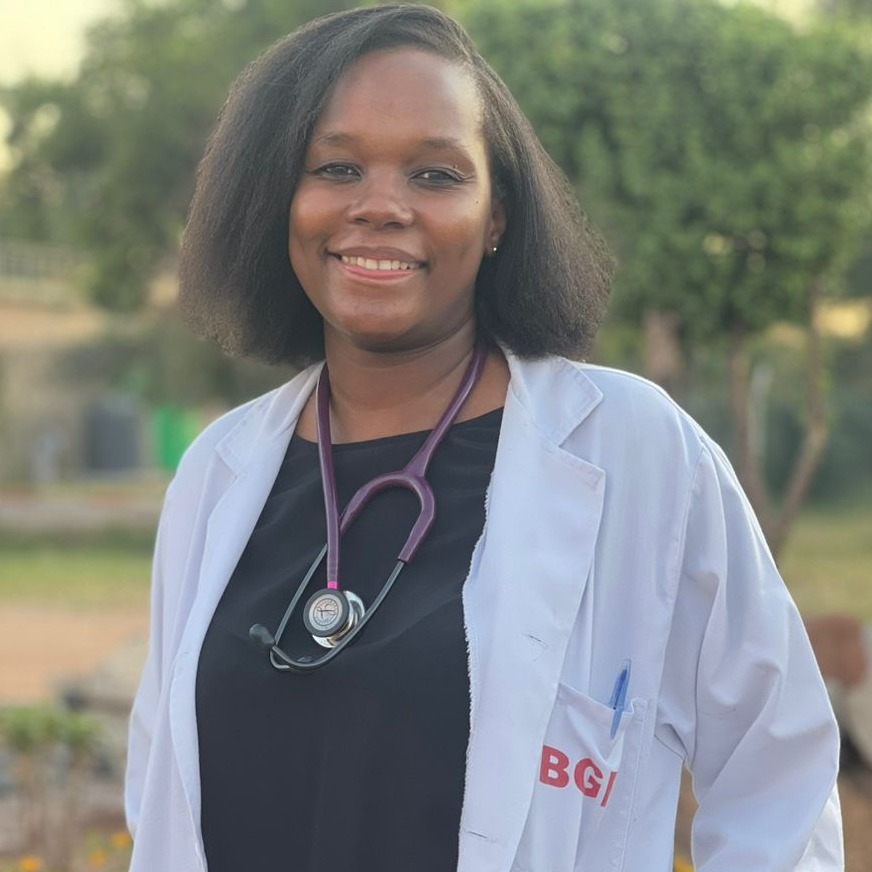"I am using various aspects of my Master of Public Health subjects in my role as an Infection Prevention and Control coordinator, and I hope to continue to use these skills in the future."
As a Principal Medical Officer and Infection Prevention and Control Committee Coordinator in the Botswana Defense Force, Dr Nonofo Mbaakanyi is applying the practical knowledge from the Master of Public Health in her daily work.

-
Why did you decide to study the Master of Public Health?
I felt that my undergraduate degree only equipped me with knowledge and skills to manage the clinical aspect of health. I undertook the Master of Public Health to understand health on a larger scale, looking at population health and patterns influencing individual health to understand, develop, implement and evaluate policies and programs to improve health outcomes in my country and beyond.
The University of Melbourne was a no brainer in that, it is the number 1 university in Australia and the School of Population and Global Health is also number 1 in the country, and in the top 15 worldwide.
-
What did you like most about the course?
I enjoyed the course as a whole, as it shone a light on aspects that were superficially touched on in medical school, such as epidemiology and public health management.
I was pleasantly surprised that I enjoyed the Biostatistics subject, as I’d told myself I was done with maths after high school.
I developed so many useful skills such as program development and management, compiling literature reviews, as well as skills in research, which I’d never been exposed to, prior to the Master of Public Health.
The program management and epidemiology skills are especially useful in my current position, as I have been tasked in reviving the Infection Control program at our hospital.
-
What kind of work-integrated learning or practical experience did you participate in your degree, and how did that impact your development?
I really enjoyed all the subjects related to program design and evaluation, as our final assignments required designing or evaluating real-life projects, which translated to relevant and practical skills in those subjects.
I conducted a research project as one of my final subjects. It was something I’d never done before, one of the hardest things I’ve ever done, but it taught me the practical skills of research, and I also learnt a great deal about my character.
I also participated in the MDHS mentoring program. I had a lovely mentor named Brigid. She is a Program Manager for Mental Health at St Vincent’s, which is a profession I would still like to pursue in the future, so the mentorship program really opened my eyes to careers such as hers in the public health space.
-
Where are you currently working and how did the Master of Public Health impact your career?
I am currently a Principal Medical Officer at the Botswana Defence Force. My role involves daily consultation of patients, mainly soldiers and their dependents (Family Medicine, HIV and TB Medicine) and the management of junior Medical Officers. I am also the Infection Prevention and Control (IPC) Committee Coordinator.
I am grateful to play a part in ensuring the nation’s safety by taking care of the men and women who protect it.
I am using up various aspects of my Master of Public Health subjects (epidemiology, program management, evaluation) in my role as IPC coordinator, and I hope to continue to use these skills in the future.
-
What advice do you have for future or current Master of Public Health students?
Public health is one of the most important areas of study one could ever pursue. It will never be redundant. I would tell them to come with an open mind and heart. They may be in Australia, however as we’ve seen with climate change and COVID-19, health is influenced by global occurrences, and it is forever changing, sometimes over years, and other times over the course of a few months.
-
What have been the best things about studying your course at the University of Melbourne?
When I came to Melbourne, I promised myself I would immerse fully in the culture and experiences, which is exactly what I did. I loved participating and playing a leadership role in student clubs such as the Australia Awards scholars club and the Master of Public Health Students Association. I was thankful to participate in the Graduate Student Association LEAD program, which helped me to look within, to hone and develop my own unique leadership style despite my introversion.
I absolutely loved learning how to dance salsa and Bachata with the Melbourne Uni Dance Sport Club (definitely out of my comfort zone), and learning how to read music with the Melbourne Uni Choral Society.
The lecturers were so warm, welcoming and approachable, which was such a contrast to universities back at home.